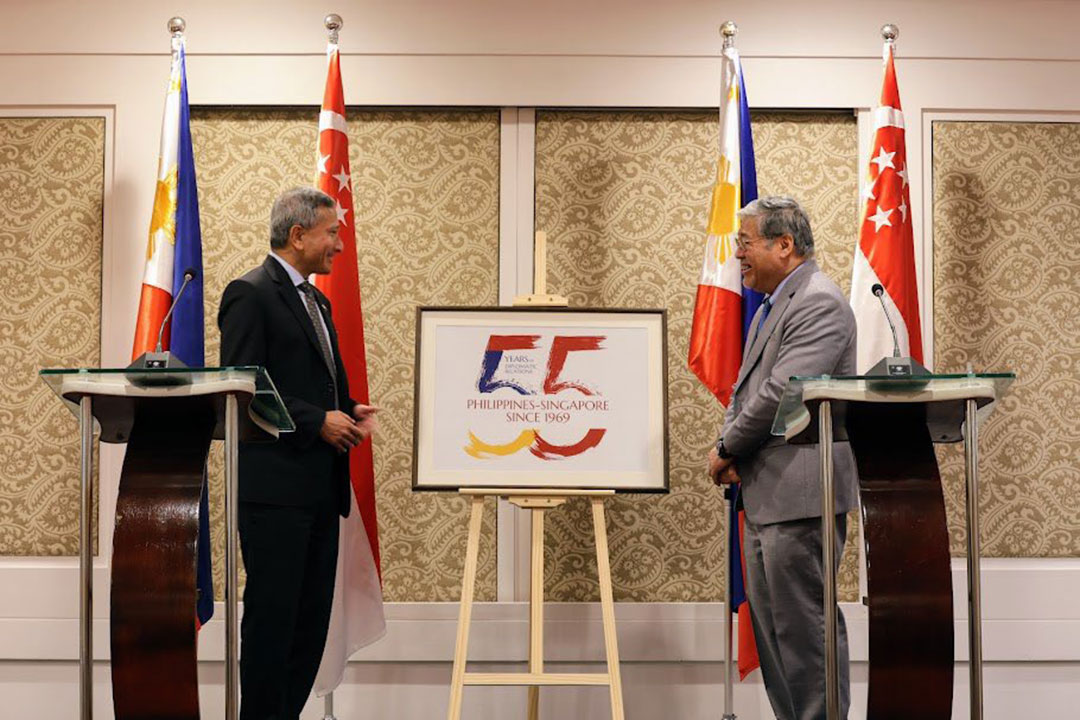Singapore, Philippines push SCS code of conduct

By John Victor D. Ordoñez, Reporter
THE PHILIPPINES and Singapore are pushing a code of conduct in the South China Sea (SCS) that they said could ease Chinese aggression in the waterway.
“The code of conduct will not resolve issues of sovereignty or issues of maritime entitlement, but it is important that we have cohesion and centrality of ASEAN (Association of Southeast Asian Nations),” Singapore Foreign Affairs Minister Vivian Balakrishnan told a news briefing in Manila.
“Nevertheless, (we are pushing this) because we believe it is one way to reduce tension and to reduce the possibility of complications if collisions or disputes occur in the waves of the South China Sea,” he added.
Mr. Balakrishnan said even though Singapore does not have any claims to features in the waterway, it is within its interest to uphold peace, stability and freedom of navigation in the region.
The code would not resolve disputes in the South China Sea, but it could drive dialogues and slowly bring in mutual trust to achieve the elusive ASEAN centrality in the tense region, Chester B. Cabalza, founding president of Manila-based International Development and Security Cooperation, said in a Facebook Messenger chat.
“The code will become the baseline framework to reduce tensions and a harbinger for future cooperation of ASEAN with major powers,” he added.
Aside from the Philippines, Vietnam, Indonesia, Malaysia and Brunei have claims in the South China Sea.
Late last year, ASEAN Foreign ministers issued a statement saying they were closely following recent tensions in the South China Sea and countries with claims over the waterway, vowing to push peaceful solutions to the disputes.
Tensions between the Philippines and China have worsened in the past year as Beijing’s coast guard continues to block Manila’s resupply missions to Second Thomas Shoal, where it grounded a World War II-era ship in 1999 to assert its sovereignty.
In her visit to Manila in January, Indonesian Minister of Foreign Affairs Retno L.P. Marsudi said the Philippines and Indonesia have agreed to work together in crafting a code of conduct in the South China Sea.
Singapore’s top envoy said he is unsure when negotiations for the code of conduct would end due to the complexity of the situation.
“I shared that the Philippines remains committed to peaceful dialogue and diplomacy,” Philippine Foreign Affairs Secretary Enrique A. Manalo told the same briefing.
“We are also committed to making our bilateral mechanisms with other claimant states work, in our adherence to the 2002 ASEAN-China Declaration on the Conduct of Parties and committed to an effective code of conduct based on the 1982 United Nations Convention on the Law of the Sea,” he added.
A United Nations-backed tribunal in 2016 said China’s claim to nearly the entire South China Sea has no legal basis, but Beijing has largely ignored the ruling and continued its island-building activities.
Chinese Foreign Ministry spokesman Wang Wenbin has said China was open to dialogue on the maritime dispute but urged the Philippines to stop its “provocations.”
Philippine President Ferdinand R. Marcos, Jr. said last year he had been trying to convince neighbors such as Malaysia and Vietnam to discuss a code of conduct, citing the lack of progress in striking a broader regional pact with China.
The ASEAN and China have been in talks as far back as 2002 to craft the code.
“We continue to encourage all parties to participate actively in the negotiations and in the practical maritime cooperation initiatives established under the Declaration of the Conduct of Parties in the South China Sea,” Mr. Balakrishnan said.
“But I believe ASEAN is united in the sense that no single ASEAN country wants to become a proxy or a vassal state of any power.”



